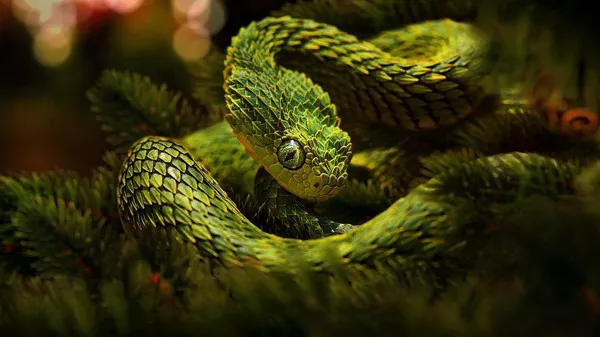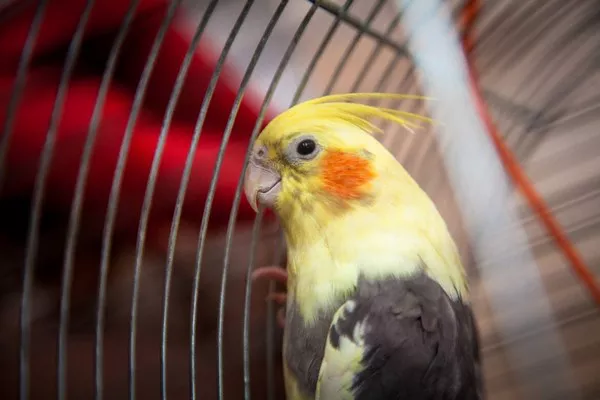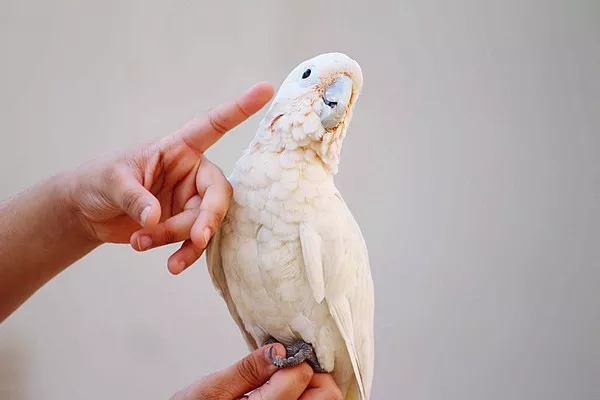Corn snakes (Pantherophis guttatus) are one of the most popular pet snakes worldwide due to their docile nature, vibrant colors, and relatively simple care requirements. They are non-venomous constrictors that primarily feed on small mammals, birds, and reptiles in the wild. But if you’re a corn snake owner, you may be wondering: can these fascinating creatures eat eggs as part of their diet? This article will explore the dietary needs of corn snakes, the role of eggs in their natural diet, and whether eggs can be safely included in a pet corn snake‘s food plan.
Understanding the Corn Snake’s Natural Diet
To answer the question of whether corn snakes can eat eggs, it’s important to first understand what they would eat in the wild. Corn snakes are opportunistic feeders, primarily consuming small rodents like mice and rats, as well as birds, bird eggs, and even smaller reptiles like lizards. Their diet depends on the prey available in their natural habitat, which typically consists of fields, forests, and agricultural areas in the southeastern United States.
As constrictors, corn snakes use their muscular bodies to subdue prey before swallowing it whole. They do not chew their food, but instead, they use a process called “swallowing whole.” Their digestive system is well-adapted to handle various types of prey, including mammals, birds, and reptiles.
In terms of eggs, corn snakes in the wild may come across bird nests or eggs while hunting. Birds, especially ground-nesting species, are often a reliable food source for these snakes, which will consume eggs when they can find them. However, eggs are not the primary food in a corn snake’s diet. While eggs can provide an additional protein source, the bulk of a wild corn snake’s diet typically consists of small mammals and birds.
Do Corn Snakes Eat Eggs in Captivity?
In captivity, corn snakes are generally fed a diet of appropriately sized frozen-thawed rodents, such as mice or rats. This diet mimics what they would consume in the wild and is easy to obtain for pet owners. However, some owners might wonder if it’s safe or beneficial to occasionally feed eggs to their corn snakes. To answer this, we need to consider the nutritional aspects of eggs and how they might fit into a corn snake’s diet.
Eggs are rich in proteins, fats, and other nutrients, making them a nutritious food choice for many animals. For snakes, eggs can provide a good source of protein and fat. However, corn snakes are not naturally adapted to eating eggs regularly, and the risks associated with feeding eggs need to be carefully evaluated.
Nutritional Value of Eggs
Eggs are an excellent source of high-quality protein, essential amino acids, and healthy fats, which are important for growth, maintenance, and energy. They also contain various vitamins and minerals, including vitamin A, vitamin D, vitamin B12, riboflavin, and folate. Additionally, eggs have a high moisture content, which is beneficial for hydration.
While eggs are nutritious, they are also quite rich in fat. Corn snakes are primarily carnivorous, but their diet consists of lean meats such as rodents, which are lower in fat compared to eggs. The high fat content of eggs may pose problems if fed in excess to corn snakes, as it could lead to obesity or digestive issues.
Can Corn Snakes Eat Eggs Safely?
In moderation, eggs are generally safe for corn snakes to eat. However, there are several factors to consider before offering eggs as a food item. Here are some key points to keep in mind:
1. Eggs Should Be Offered Sparingly
While eggs can provide some nutritional variety for your corn snake, they should not be a staple food. Corn snakes should not be fed eggs on a regular basis. Their primary food source should remain rodents, which provide the appropriate balance of nutrients, especially lean protein.
Eggs should only be given as an occasional treat, not as a replacement for the corn snake’s regular diet. A healthy corn snake’s diet should consist mainly of rodents, with eggs as an infrequent addition—perhaps once every month or two.
2. Egg Preparation Is Important
If you decide to feed your corn snake an egg, it’s important to prepare it properly. Raw eggs, especially the egg whites, contain avidin, a protein that can bind to biotin (a B-vitamin) and interfere with its absorption. Over time, this could lead to a biotin deficiency, which can negatively affect your snake’s health. Cooking the egg helps eliminate the avidin and makes the egg safer for your snake to eat. Soft-boiling or scrambling an egg is a good method of preparation.
Always remove the eggshell before feeding it to your corn snake, as the shell is hard and difficult to digest. Some snakes may be able to ingest small fragments of eggshell, but it is generally best to avoid it to prevent any digestive issues.
3. Monitor Portion Sizes
When feeding eggs to your corn snake, it’s important to consider the size of the egg in relation to the size of the snake. A corn snake’s prey should always be an appropriate size for the snake to handle comfortably. A large egg could be difficult for a small corn snake to swallow, so it’s best to choose small eggs, or better yet, feed your snake a portion of the egg.
It’s also important to ensure that the egg doesn’t become a replacement for the snake’s regular meal of rodents. If you choose to offer an egg, it should not make up more than 10-20% of your snake’s diet over time.
4. Watch for Digestive Issues
Some corn snakes may have difficulty digesting eggs, especially if they are fed too frequently or in large amounts. Symptoms of digestive distress could include regurgitation, lethargy, or lack of interest in eating. If you observe any of these symptoms after feeding your corn snake an egg, it’s best to refrain from offering eggs again and consult a veterinarian with experience in reptile care.
5. Risk of Contamination
Eggs can carry harmful bacteria, such as Salmonella, which can be a risk for both humans and snakes. When handling eggs for your corn snake, always wash your hands thoroughly before and after feeding them to your snake. Also, make sure the egg is fresh and free of cracks that could allow bacteria to enter. This is especially important when offering raw eggs. While cooking the egg can reduce the risk of bacterial contamination, it’s still essential to practice good hygiene when feeding.
6. Monitor Your Snake’s Weight and Health
If you are offering eggs to your corn snake occasionally, keep an eye on their overall health and weight. Corn snakes that are overfed, or fed a diet that is too rich in fats, may develop obesity or other health problems. Regular weight checks and a balanced diet of appropriate prey (mainly rodents) are crucial for maintaining a healthy corn snake.
The Risks of Overfeeding Eggs to Corn Snakes
While eggs are not inherently harmful to corn snakes, overfeeding them can pose several risks:
Obesity: Eggs are high in fat, and while fat is necessary for energy, excessive fat can lead to weight gain. Corn snakes are relatively inactive when compared to other pets, so too much fat can cause them to become overweight, which may lead to other health complications.
Nutritional Imbalance: A diet consisting solely of eggs could lead to a nutritional imbalance. While eggs are high in protein, they lack some of the essential nutrients that corn snakes need, such as the proper balance of calcium and phosphorus. This could result in deficiencies or other health issues in the long term.
Digestive Problems: As mentioned earlier, the richness of eggs can sometimes cause digestive upset, particularly if they are fed in excess. Regurgitation, bloating, and other digestive issues are possible if the snake’s stomach is overwhelmed with food that it is not accustomed to.
Over-reliance on Eggs: Some snake owners might assume that eggs are a more convenient food option than rodents. However, relying too heavily on eggs could lead to a lack of essential nutrients that are present in rodents but absent in eggs. This can negatively affect the health of your corn snake over time.
Conclusion
While corn snakes can eat eggs in moderation, it should never be the primary food in their diet. In the wild, corn snakes may occasionally consume eggs, but their primary food source consists of small mammals, birds, and reptiles. Eggs are a good source of protein and nutrients but can be high in fat, which can lead to obesity and other health issues if fed too frequently. To keep your corn snake healthy, offer eggs only as an occasional treat, prepared properly, and in appropriate portions. Always monitor your snake’s health and consult with a veterinarian if you have concerns about its diet.
By understanding the natural feeding habits of corn snakes and making informed decisions about their diet, you can provide your pet with a healthy, balanced life that mirrors its natural needs. Eggs can certainly be part of that, but they should be given sparingly to ensure your snake’s continued health and well-being.
Related Topics:

























